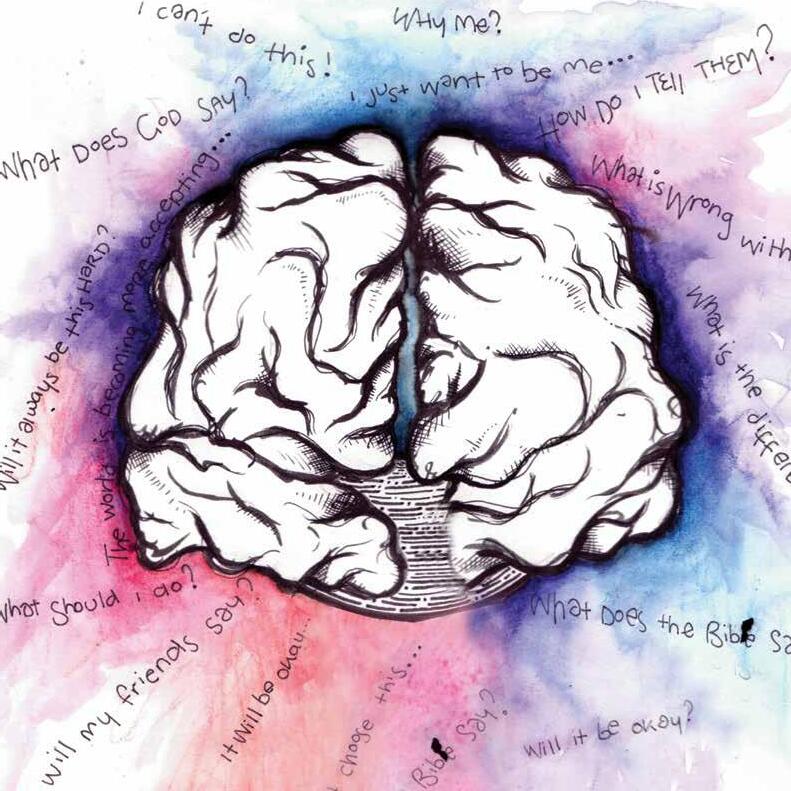
Let´s Talk about Sexuality The Explosive Power of Taboo Subjects world student christian federation europe region ecumenical journal | issue 36 | 2017
“This issue of Mozaik follows the Study Session “Let´s talk about sexuality: The Explosive Power of Taboo Subjects” organised by WSCF – Europe and EYCE. The publication is funded with the support received from the Erasmus+ Programme of the European Commission, European Youth Foundation and the European Youth Centre of the Council of Europe. This publication reflects the views only of the author, and the donors cannot be held responsible for any use which may be made of the information contained therein.”
editor-in-chief
James Jackson
art editor
Andrea Franić – Studio Idearium
illustrators

Esther Baird & Clare McCay
address
wscf Europe



Piazza di Centa 9, 38122, Trento, Italy

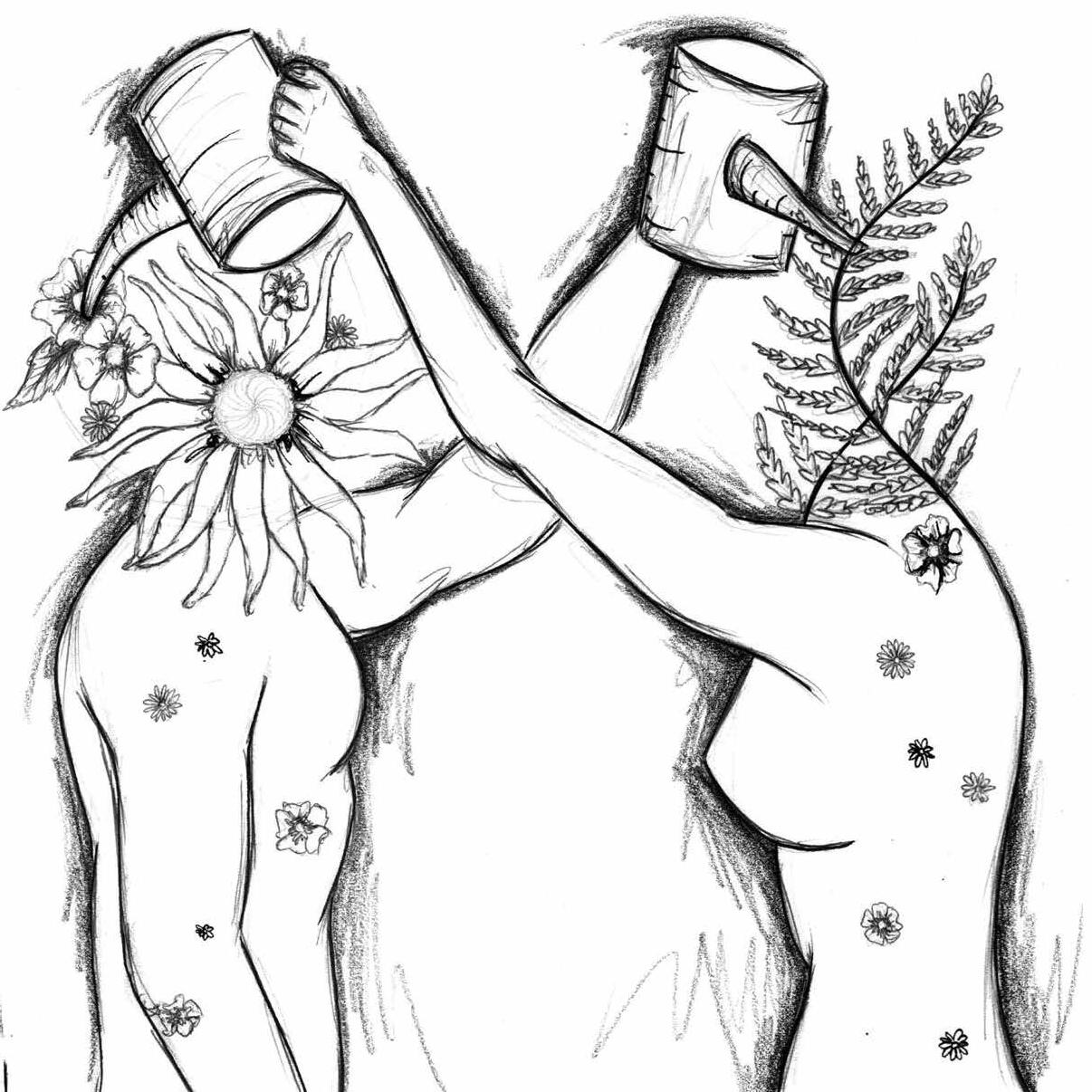
Mozaik Editorial
Everybody has one, but nobody talks about it. Without it, no one would exist. People disagree whether it’s a choice or you’re born with it. And it can be dangerous enough to warrant prohibition in many of the worlds’ countries. What is the answer to this mysterious riddle? Well, as you can probably guess from the cover, it’s sexuality. It is something which affects every person in the world, and yet it is rarely discussed openly, except with condemnation or embarrassment.
In this issue of Mozaik, we decided to follow wscf Europe’s lead and break the taboo. We will be discussing many issues relating to sexuality. However, sexuality is not just something we experience; it is also something we study, and think about in relation to faith. For this reason, this 36th issue of Mozaik is divided into two sections: Heart and Mind.
Heart is based on sharing our experiences of sexuality and faith; whether this relates to growing up as the trans child of a minister and rediscovering your own faith, like in our spotlight article In or Out from trainee minister Alex Scott Young, or the shifting boundaries of modern relationships from Chaplaincy Assistant Ella Sibley in “This is my Partner…” Knut Svihus shares his story of coming out…. as a Christian! Meanwhile Rob Howe and Pierre Thierry reflect on masculinity and gay sexuality, and Carla Grosch-Miller shares a lesson from a conference from the Centre for the Study of Christianity and Sexuality.
In Mind we learn about scripture’s take on this topic, so crucial to our very existence. Does the Bible set out to prohibit sexuality? This shibboleth issue is discussed by expert on lgbt issues Dr K. Renato Lings, who shares amazing insights on same-sex love in the Bible. Hadje Sadje asks whether women are empowered or denigrated by stories about them in the Old Testament. Are they Texts of Terror or Liberation? Reflecting on the Budapest conference, Hoi Tung Ng discusses whether transgender issues should be viewed as medical probles. And, reprinting an article from Mozaik 26, we investigate one of the most taboo topics of all time: Understanding the Mystery of Clerical Sexual Abuse.
I hope this issue raises, and answers, some questions in your mind, so that we can fully understand one of the mysteries of our shared humanity: sex.
Blessings,
James Jackson
James Jackson is a teacher, dj and editor based in Liverpool, uk. He has a Masters Degree in Religion & Political Life, and enjoys travelling, food and music.
 Mozaik Editor-in-Chief
— james jackson
Mozaik Editor-in-Chief
— james jackson
Mozaik 36
section 1 | heart
In or Out | Alex Scott Clare - Young | 6
Student Sexuality | Ella Sibley | 13
Forever Walking Out the Closet | Knut Natskår Svihus | 18
A Lesson from a Real Life Pastoral Encounter | Carla Grosch-Miller | 21
Masculinity | Rob Howe | 27
Is Love Dirty? | Pierre Thierry | 31
section 2 | mind
Homosexuality and the Bible | Dr K. Renato Lings | 35
Texts of Oppression or Liberation? | Hadje Cresencio Sadje | 41
Understanding the Mystery of Clerical Sexual Abuse | Martin Weber, D.Min. | 51
Demedicalizing Transgenderism | Hoi Tung Ng | 55
La Sexualite & Hermaphrodite | Melissa | 59
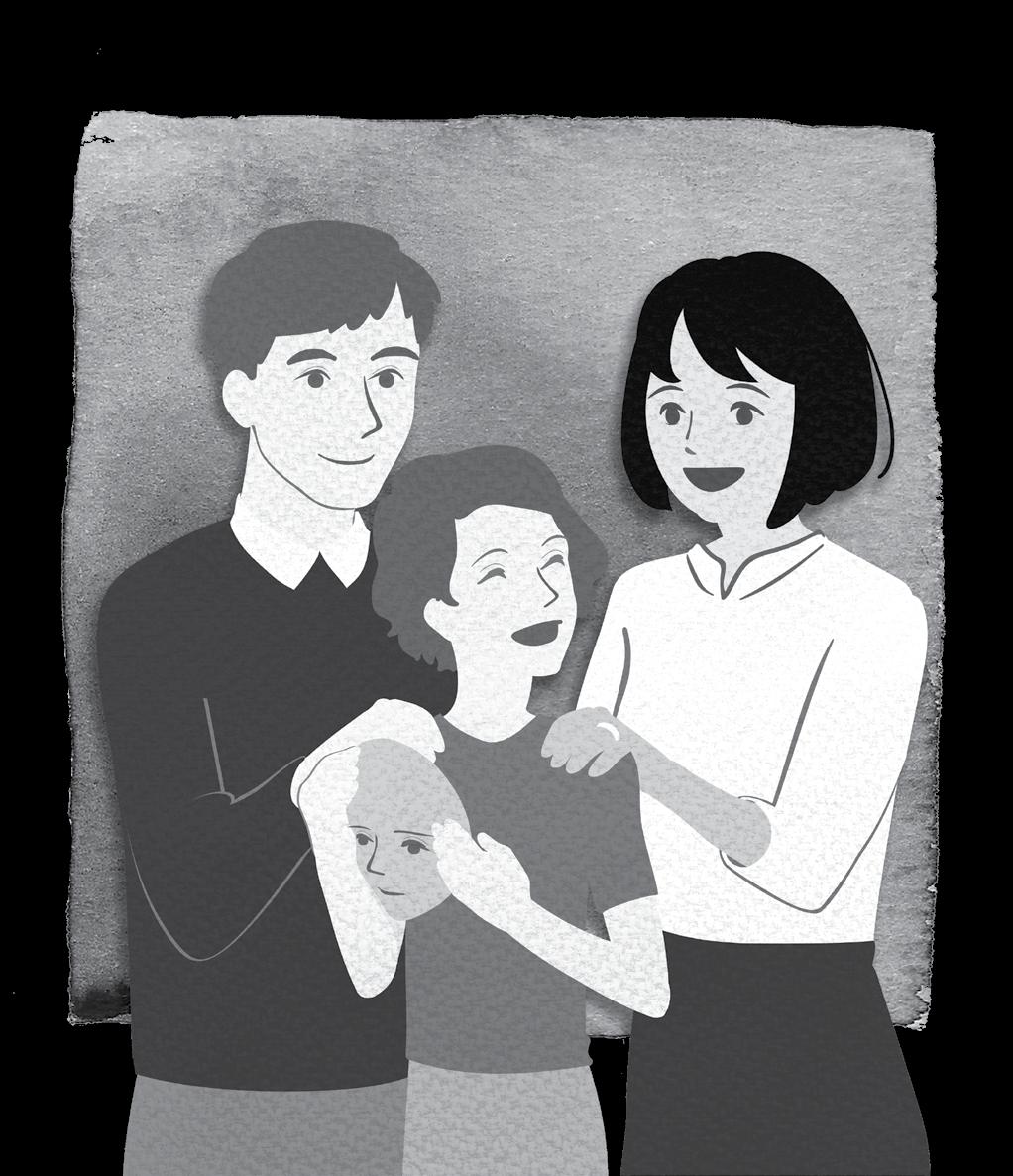
mozaik 36 I Heart Section I 5 section 1 Heart In or Out | Alex Scott Clare - Young | 6 Student Sexuality | Ella Sibley | 13 Forever Walking Out the Closet | Knut Natskår Svihus | 18 A Lesson from a Real Life Pastoral Encounter | Carla Grosch-Miller | 21 Masculinity | Rob Howe | 27 Is Love Dirty? | Pierre Thierry | 31
In or Out
my story
Liminal, transformative and exciting are all words that are used to describe training for ministry. We are often reminded that we are on a journey. My journey towards ministry started about 20 years ago. I grew up as the child of a minister, and knew how to dress and behave exactly as expected. My journey towards transition also started about 20 years ago. I grew up as the child of a minister, and every Sunday morning my parents had to struggle to get me into my “Sunday best” and every Sunday afternoon, so I am told, I changed straight back into my trackies as soon as possible.
Fast forward 20 years and I am in a different place altogether. I have been transitioning from female towards male for six years now, and am a much more confident, happy, capable human being. I have also been journeying in my faith, and began to train for ministry last year. I believe in a God who creates us anew every time we open our eyes (and our minds). I believe in a Spirit that breathes into the world to transform individuals and communities. I believe in a Christ who lives out God’s Word of justice and peace, and I believe that I am called to lead by following and by asking questions. There is a big question, though, that refuses to be answered easily: in or out?
mozaik 36 I Sexuality and Taboos I 6
— alex scott clare - young
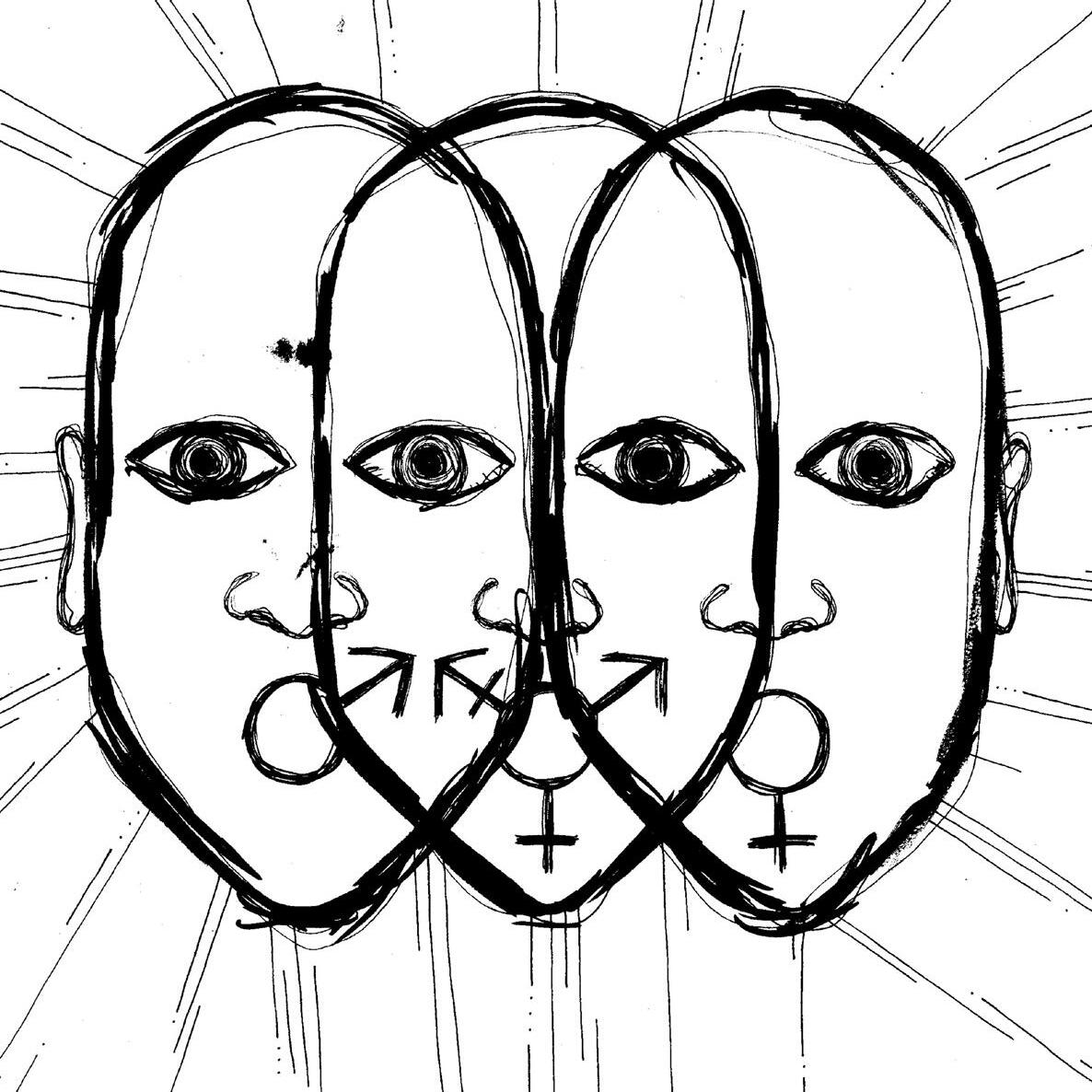
Jesus answered, “My kingdom is not from this world. If my kingdom were from this world, my followers would be fighting to keep me from being handed over to the Jews. But as it is, my kingdom is not from here.” Pilate asked him, “So you are a king?”
Jesus answered, “You say that I am a king. For this I was born, and for this I came into the world, to testify to the truth. Everyone who belongs to the truth listens to my voice.” Pilate asked him, “What is truth?”
(John 18:36 – 381)
1 All Bible quotes nrsv
A lot of lesbian and gay people will be able to tell you the story of the first time they came out. After that, there are lots of little coming out moments, when introducing a new partner, for example. For bisexual and transgender people, it is a little different. If we are — as I am — in a relationship with someone of the opposite gender, then we are perceived to be heterosexual. I am marrying the person who I want to spend the rest of my life with next week. It is such a joyful experience. And yet, for both of us there is that tension between expressing our love for — and commitment to — one another, and not being able to visibly express our fullest identities.
There are lots of different coming out moments as someone who is transgender, and I believe that many of these
mozaik 36 I Sexuality and Taboos I 8 coming out — micro - aggressions
are, or lead to, microagressions. A microagression1 is a repeated small or casual degradation which builds up to create more trauma than a larger incident. There was the time when, in a casual conversation with a stranger, I was asked what school I had gone to. I gave the true answer — a private school for girls — without thinking, and the stranger said that they would pray for me, and promptly left. The time when I went to get my hair cut and the barber said
that they didn’t cut girls’ hair. The time when I had to ask to use the accessible toilet in a train station, where the gents only had urinals. Each of these moments was embarrassing, awkward and slightly painful. Each had the potential to wear away at my self - confidence and make me nervous in public situations. These moments still happen. I don’t think that they will ever stop.

mozaik 36 I Heart Section I 9
1 Coined by Chester M. Pierce in 1970
These moments exist in church life too — moments where I have to decide whether to tell the truth, when doing so would mean coming out, or to tell a lie and hide who I really am for the sake of a quiet life. Jesus also suffered a lot of microagressions for having integrity and living out his true identity. I wonder if they added to the pain of the cross.
Living in, though, threatens to split up my identity into little boxes. One box would have the label “Christian Alex”, another would be “trans Alex”, another might be “musician Alex” or “partner Alex”. The boxes would need to be stored in separate rooms, behind closed doors. Some of them would have to have a padlock on them. I don’t think that that is what Jesus meant when he said that he came that we might have life in all its fullness or abundance. Living abundantly means being generous with our truths, open with our identities and challenging with our words and actions.
Living in, ultimately, might be the answer for some people, but it isn’t for me. I need to take each coming out decision one at a time and make sure that I am always speaking the truth to power, in love, and with the hope of renewal and kingdom building here on earth. God’s kingdom will not be built if we are all hiding in boxes, too scared to use the tools that we have been given.

mozaik 36 I Sexuality and Taboos I 10
living in — micro - identities
The thief comes only to steal and kill and destroy. I came that they may have life, and have it abundantly.
(John 10:10)
And I do believe that, as a transgender Christian, I have been given a pretty special set of tools. Each of us has our own unique identity that is God – born and has transformative power. Our identities are where many of our tools and gifts hide.
The first ever service that I led was about lgbtq identity. My story has opened conversations up that have brought hurting people to God and brought hurtful people to their knees. It is only from a place of oppression that we can follow Jesus’ example of breaking chains and setting prisoners free.
And yet, it is not only the lgbtq community that I am called to work with. I have worked with the homeless, the sick, the elderly, and the poor. In all likelihood I will spend a lot of my time working with the wealthy, the privileged and people of all sexualities and genders, including those who are cisgender2 and heterosexual. My identity is part of that too. No, I don’t talk about being trans in all of the services
2 Whose gender identity is the same as their birth sex
mozaik 36 I Heart Section I 11 a
queer calling?
“The Spirit of the Lord is upon me, because he has anointed me
to bring good news to the poor. He has sent me to proclaim release to the captives
and recovery of sight to the blind,
to let the oppressed go free, to proclaim the year of the Lord’s favor.”
(Luke 4:18 – 19)
I lead — frankly, it is very rare that I do. I do, however, have empathy and understanding for all people who have suffered at the hands of others, who have had doubts about who they are, who find life complicated and confusing, and who sometimes fall to their knees in desperate prayers for help.
I am called as a whole person — and that includes my identity as someone who is transgender. It includes my past, my present and my future. It hurts and worries me to think that my calling might be undermined or denied by those who think that my identity is inherently more sinful than theirs. It concerns me that I might have trouble finding a church. Even writing this article makes me nervous. However, I can’t and won’t be silent, or hide. As a child of God, I know whose judgement matters, and I want to stand before God as a whole person, a person of integrity and of honesty. A person who admits my sin and frailty, but who knows that being myself is not wrong.
be both. I will speak the truth when it will do good — when it will help to undermine oppression, when it will show another human being that they are good enough in God’s eyes. And I will be in when quietness is the right answer, when words would only wound, when there is time for peace and stillness. Out or in? Trans or Cis? Gay or straight? No. None of these. All of these. Simply called.
in or out?
So, what is the answer, in or out? The answer is that, like gender, it isn’t a binary choice. God did not create a binary gender — male or female. God created a scale — male and female, living together in unity with all that is in - between and outside of them. Similarly, God does not shape our lives into neat little binary decisions. I won’t be in or out, I will
Alex Scott Clare-Young is currently training for ministry in Cambridge. He is married to Jo, also an ordinand. He is passionate about social justice and enjoys reading, writing and catching Pokemon in his spare time. He is a 90s kid after all.

mozaik 36 I Sexuality and Taboos I 12
There is no longer Jew or Greek, there is no longer slave or free, there is no longer male and female; for all of you are one in Christ
Jesus. (Galatians 3:28)
— alex scott clare-young
Partner…”
Student sexuality and the redefinition of relationship

mozaik 36 I Heart Section I 13
“This is my
ella sibley, assistant chaplain, university of roehampton, london
At a party recently I got chatting to someone and then they said these words: “this is my partner.” Once upon a time I could reasonably have expected to meet their work colleague; later this term began to be used by lesbian and gay people to describe the person they were intending to spend the rest of their life with; but on this occasion, I heard it from a twenty-something man to refer to the woman he was romantically involved with — they’d been together less than three months. The rapidity with which the geography and milestones of romantic relationships are changing can leave many feeling confused and even worried, but my work has opened my eyes to the generation who are putting honesty, empowerment and love at the centre, as together they rewrite the road-map.
Romantic relationships come in all shapes and sizes, but there are some things we can all agree on; a “healthy” relationship should include respect, trust, affection, good communication, mutual appreciation and a certain “Je ne sais quoi” — the “spark” or “chemistry” — the electricity that defies definition, but is instantly recognisable once felt or observed. So far, we can all agree; but there are some relationship characteristics that are disagreed upon. The “correct” genders of partners and their respective sexual orientations are endlessly and fiercely debated. The recent mass shooting in Orlando, Florida is tragic proof that homophobia is still rife. This, of course, is an extreme example; but it is still quite common to hold, or encounter others who hold, the belief that the “correct” form of romance is between a heterosexual, cis-gendered man and woman exclusively.
There are obvious points of agreement and obvious points of disagreement which I could comment on, but instead, I choose the third option. What are the milestones in a relationship? My conversations with students and my own experience leads me to give this (not exhaustive) list: marriage or civil partnership, engagement, sex, “merging finances,” moving in together, falling in love, having children,
“going public” and exclusivity. Most would agree that these represent different levels in a relationship — that the addition or subtraction of any one of these significantly changes the dynamic of the relationship. I have tried to deliberately list these in a non-chronological order, for very good reason — this is my “third option,” the non-obvious point of disagreement that is changing the way young people are forming relationships. As an example, please do find someone and ask them to arrange those milestones into the time-line of a relationship — I can almost guarantee that they will have a different idea of the “normal” progression of a relationship from you.
Indeed, it was over this very issue that I found a group of good friends vehemently arguing in Chapel recently.
“I couldn’t possibly marry someone before living with them — I couldn’t really know someone until then!”
“There’s nothing wrong with having sex before being in an “official’ relationship with someone — it can just be about fun.”
“I wouldn’t even call it a relationship unless I thought I was in love with them.”
So why is there such disagreement? Why is what’s normal for one, considered taboo by another, and idiotic by a third? It’s a massive question, but I can offer a few ideas from my experience. The University of Roehampton is in South-West London and has students from over 140 different countries – the huge mix of cultural backgrounds accounts for a fair amount of the variation in opinion. I’ve met students who are expecting arranged marriages, students who never want to get married, students who won’t have sex before marriage and lots who won’t have marriage before sex — much of this is due to the expectations they formed as children, by observing those around them.
mozaik 36 I Sexuality and Taboos I 14

mozaik 36 I Heart Section I 15
Religion also, of course, plays a large part, and it’s important to recognise this as separate from culture or upbringing. I’ve met “born-again virgins” — those who, upon converting to a certain denomination of Christianity, reclaim an identity as a virgin and thereafter refrain from sex before marriage. I also spoke to a student earlier this year, who, after much prayer, believed that God was leading him to change his opinion on physical relationships before marriage. Clearly these are not issues of upbringing, but instead born of a living faith.
The other major trends play out on a much wider field and over longer spans of time — the invention of hormonal birth control, the empowerment of women, extended life expectancy, more time spent in education and the lengthening of “adolescence” have all led to changing patterns of relationship.

A final consideration worth mentioning is one I see firsthand in London — the cost of housing. It may sound trivial, but with average rent in London being over double the na-
tional average, it is a prime consideration for those moving out of university halls and into the private market. I see many students rush into living with a partner for this reason, and it is becoming more common to live with someone for years before marriage.
The students arguing in chapel over the relationship road-map will not be the first, nor last, to have this discussion — who among us hasn’t been surprised by an unexpected house-warming invitation, an unlooked-for pregnancy announcement, or the sight of one half of a couple being repeatedly asked “so when are you two going to finally tie the knot?” But what struck me about their conversation was the vehemence with which they held to their beliefs, contrasted with the acceptance they had for each other’s.
Jesus gave the commandment to “love thy neighbour” or “do unto others as you would have them do unto you.” My work with secular students has led me to believe they have a different “golden rule,” one that, on the surface, seems
mozaik 36 I Sexuality and Taboos I 16
almost identical. It can be basically summed up as “do no harm,” but I more often hear a colloquial version that sounds something like: “if you’re happy, and you’re not hurting anyone, then that’s fine.”
In actuality, these statements are hugely different; one is based upon doing good for others, the other upon doing no harm to others. Perhaps controversially, many of my students have lost patience with Jesus’ commandment — they believe it leads to intolerance, particularly around issues of sexuality.
The merits of Jesus’ way over the secular golden rule are obvious when it comes to most injustices — if you pass a beggar on the street with the mantra “love thy neighbour” in your head, you may well stop to give money; meanwhile “do no harm” will allow you to walk by. And this example highlights a major difference in the approaches. “Love thy neighbour” forces us to be responsible for one another, to become brothers and sisters. Whereas “do no harm” is the perfect mantra for our increasingly individualised society; the only person you’re responsible for is yourself.
And it’s particularly on the issue of sexuality that the two approaches grate on one another — Christians are perceived as trying to meddle in the private lives of others when they make moral judgements, or even simply try to give advice on relationships and sexuality. Hence many of my secular students have lost patience with “love thy neighbour” — believing it leads to intolerance.
But doing unto others as you would have them do unto you has to begin with sympathy. If I literally gave others the things that I desire for myself, I probably wouldn’t do much good in the world, and a few ludicrous examples should prove this. My favourite food is pasta, but I shouldn’t try to feed it to someone who’s gluten-intolerant; I thoroughly dislike going to the gym, but that doesn’t mean I should
start closing them down. Instead, we must each put ourselves in the shoes of another — “if I was them, what would I want?” And it’s here that Jesus’ advice trumps that of the secular world, because if we get it right, we can engage with others on a deeper level. Most of my pastoral work with students is listening to them talk about navigating romantic relationships — it’s a huge privilege to be allowed into this area of their lives and have the opportunity to be a force for good there.
There is a way to do good when listening and advising on relationships that doesn’t involve meddling or moralising, and it actually takes us back to the start. Romantic relationships come in all shapes and sizes, but there are some things we can all agree on; a “healthy” relationship should include respect, trust, affection, good communication, mutual appreciation and a certain “Je ne sais quoi.” In my work with students, these are the things I focus on — it doesn’t matter what my opinions are on sex before marriage, or sexual orientation, or cohabitation. We must be open to others using different road-maps, as long as they have a healthy relationship with the partner with whom they share the journey.
And I believe we can do this while maintaining an authentic Christian identity, because that list (respect, trust, etc.) doesn’t simply cover the necessary qualities of romance, but of all relationships. We can easily apply those qualities to a friend, sibling, even colleague. Even chemistry, which is often thought of as a sexual energy, can be applied elsewhere, because that spark can take other forms; the identical sense of humour of best friends, or the creativity in “bouncing ideas” with a colleague. But, most obviously, this definition can be applied to our relationship with God — our first relationship, because he loved us first, even before our birth. A relationship with the spark of living faith. When listening and advising others we can encourage love, trust and finding the spark, all while pointing to the God who is the source of all these.
mozaik 36 I Heart Section I 17
Forever walking out of the closet
knut natskår svihus
Have you ever thought about how it is to always come out of the closet each time you make a new friend, business partner, or colleague? As the slogan pictures it: it does get better, and simpler, each time you do it. At the same time you have to do it; you have to share a private detail of your personal life with new people. I show the signs, it isn’t especially difficult to see what I am, but I still have to tell people and very often defend my position.
Oh, you were thinking about me being gay? Well I am gay, but I was thinking more about the fact that I am both a Christian and gay. Each day I start by putting a necklace with a silver cross around my neck. God is with me and strengthens me every day, but my belief also makes an interesting conversation both at my workplace, at my university, and in the line when waiting for my turn to buy a beer at my regular bar. So many people ask me why I can believe in something so unbelievable. People ask me why I can believe in something that causes distress and agony for so many of my “own” people.
When I go to a church service on Sunday I get asked if my female friend is my wife, when she in fact is more interested in their wives than in me. The guys are commenting how beautiful the girls in the room are, and that they would like to date them all. I nod and cough something confirming
mozaik 36 I Sexuality and Taboos I 18
while I try to find a different topic to talk about. Quite often I manage to reveal my true identity by a mistake and the silence usually spreads as fast as the common cold. “So you are gay, and a Christian?” Yes I am. “You like men more than you like women?” Yes I do. “But you said you are a Christian, isn’t that a contradiction?” No it isn’t at all.
In the public debate it is interesting for the media to publish the voices of the most polarized sides. The polarized sides of a debate generates a larger amount of revenue through advertising We hear about those who will abolish all forms of religious belief so religious conservative voices will be silenced. We also hear those who want queer people to repent and be saved from the fire of hell. We hear very little about the vast majority in the middle. Those who want all of us to live a life in respect and love, and who agree to disagree. The public debate shapes how we act and react to each other in our everyday life.
When I find myself in a new Christian community I bring with me the thoughts of the most extreme voices. The voices that tells me that my life is a sin and that my love to another man is an abomination. I immediately go into a defensive position. I do not express my faith in the way I should because I am afraid to be shut down, even though I know that I will probably never experience such a reaction. I am afraid to show my whole personality just so that I do not need to come out of the closet one more time.
Even though the Norwegian parliament only just divided the relations between the state and the church, Norway is a secular country. Religious belief is thought to be a private or personal aspect of your life. Sexuality on the other hand is also something personal, but it is much more shown through romantic expressions between two persons. In that way it is also much more accepted in many ways than religious belief. When I end up in discussions or conversations with other individuals identifying as lgbtqi-persons
the thing they most often react to is that I’m a Christian. They especially react when I say that I am the leader of a student Christian organisation (Bergen Kristelige Studentforbund). I usually don’t want to assume other people’s opinions, but I feel when I’m in those situations that their first thought is that I must be stupid and ignorant person. I do understand them; what has Christianity done for them lately? It has given them agony and it has been used to legitimize oppression of them. I must be a lesser person than them to have chosen such a path for my life.
Recently I was fortunate to have the opportunity to join the seminar “Let’s talk about sexuality” by the wscf and eyce. I went to Budapest with no expectations and a large amount of prejudiced thoughts. I thought we were going to be a very divided group with the “equality heroes” from Scandinavia and the conservative rest. I thought we were going to be the spitting image of the polarized debate in the media.

mozaik 36 I Heart Section I 19
In fact I experienced one of the most powerful weeks in my life. A diverse mix of people from all over the world. We had discussions and conversations that lasted for hours powered only by curiosity. It also made me ashamed. How had I become the stereotype of what I am scared of myself?
During the week in Budapest I learned what is wrong with the situations I have described earlier in this text. I learned that we meet each other with fear. Fear for something that will ruin our understanding of our world. Fear for something that will challenge the way we judge what is good and bad. Fear is based on insecurity. We battle insecurity by obtaining more knowledge and to gain more knowledge we need to be curious. Curiosity is the essence of what I learned more about in Budapest. I learned that there are so much more about all of the people we meet every day than meets the eye.
I learned that when I meet other lgbtqi-people or when I go to church I should use my curiosity glasses. I should try to experience those I meet as whole human beings with more than just the superficial way of appearance. We are much more than what we show to each other. When I am meeting my queer brothers and sisters and when I meet a brother or sister of faith I should lower my guard and embrace who I am as a person. I should also embrace their diversity and try to learn more about how their lives are and how their way of life could be inspiring to me.

By leading as good examples we could make a difference among our friends and others that we meet. Embrace the curiosity and put away your fears and prejudices. It could make my continuous walk out of the closet more enjoyable. As Albert Einstein once said “I have no special talents. I am only passionately curious.”. Like Einstein we could also discover amazing aspects of life just by being open minded and interested in the life we live.
Studying comparative politics, leading the scm in Bergen – Norway. Identifies as a christian, nothing more, nothing less. Uses the scms warm chapel as a brewery.
mozaik 36 I Sexuality and Taboos I 20
— knut natskår svihus
A lesson from a real life “pastoral encounter”
 carla grosch-miller
carla grosch-miller
july 13, 2014 admin leave a comment
At the CSCS “Embodied Ministry” conference, the final plenary session dealt with “Gender and Sexuality in the Pastoral Encounter”, in which three panellists each contributed a short personal perspective. Rev Carla Grosch – Miller focused on the words, “pastoral encounter”:
The word “encounter” is provocative. It suggests the possibility that we will change each other, that our conversation will be converting.
I want to take note of the opportunities inherent in pastoral encounters that touch on gender and sexuality, and then tell a story. My particular interest in pastoral encounters is in enabling a personal encounter to impact the larger setting in which we operate, perhaps to stimulate other encounters and conversations that move the body of Christ towards greater wholeness.
mozaik 36 I Heart Section I 21
Opportunities in Pastoral Encounters:
· Surface the feelings and truths in the situation

· Affirm a person’s reality and make the space for them to work with it
· Equip and enable the right response for the person and the situation
· Constructively engage all the sources of theology – scripture, tradition, reason, experience
It was the beginning of the second day. I hadn’t slept well. The first day had ended with a strong statement by a participant that sex belonged only in marriage, God-ordained between one man and one woman. No one had risen to articulate a different view. A heavy silence hung over the class as we disbanded.

I had laboured to make the space safe and open. The participants held diverse theological viewpoints; I had hoped that we could teach each other as we explored this sensitive topic. As I tossed and turned that night, I wondered how, in my striving to make the space safe for all, I had empowered primarily those who kept to the party line.
At breakfast “Michael” approached me. “I’m really angry about how the class ended yesterday. I’ve been angry all night. I felt like I was being told that I was not a Christian,” he said. “Can you say more?”, I asked. He then told me his story: the story of a young man active in church struggling with his sexuality who, when he had his first sexual experience with another man, was full of self-loathing. Michael became strident in his opposition to homosexuality, until he couldn’t bear the dissonance between what his heart knew and what his tradition taught. He went to his pastor and confessed his struggle. The pastor promptly removed him from all church responsibilities. Michael left and continued to wrestle issues of sex and faith. He came to accept his sexuality and discovered a renewed and deepened faith that in time blossomed into a vocation for ministry. I asked him if he would be willing simply to tell his story at the start of the day’s class. He said “Yes.”
mozaik 36 I Heart Section I 23
a story:
I began the class (after psalm and prayer) with a statement that at the conclusion of class the previous day, we had heard a strong articulation of a scriptural and traditional view of the place of sex in human life and asked if there were any other viewpoints, perhaps drawing on other sources of theology. Michael raised his hand and told his story.
The impact of the story was to transform the space, opening and warming it. Some thanked him for his courage. People who held the heterosexual marriage only viewpoint acknowledged that, while their opinions were strong, there was a need for pastoral sensitivity when dealing with this

subject. (Indeed, the two most vocal protagonists of that view approached Michael during the tea break to speak with him.) The remainder of the course was marked by great sensitivity, which enabled others later to speak openly about struggles with internet pornography.
Michael later described the experience of the first day as extremely painful, triggering all the hurtful, destructive, unloving things he had heard as a young man. He knew he either had to live with the anger and survive the rest of the course or say something. He would have wanted to say something judgmental and angry, engaging with the is-
mozaik 36 I Sexuality and Taboos I 24
sue theologically, but with my encouragement decided he would just tell his story. He couldn’t have done that on day one because “it would have felt like I was playing the victim, changing the discourse to a different, emotional level which didn’t seem fair”. But that second morning, he felt he could offer it in the structure of a conversation about the sources of theology.
When he opened his mouth to speak to the group, he thought “Oh my God, what am I about to do?” He knew that people would see him in a different light forever after. But once he began, the atmosphere in the room changed. He got visual clues of support around the room: thumbs up, smiles, tears. He immediately felt relief – having said all that was on his heart, not repressing or bottling anger. The man next to him, who was theologically more traditional, put his arm around him when he finished.
“The best thing”, Michael said, “was the spirit of generosity, openness and honesty –real listening to each other– treating each other as sisters and brothers, once we got over the hurdles of fear, doubt and hurt…. ‘Hearing’each other into speech’[1] summed up the whole experience of the course……the Holy Spirit was definitely there.”
2014 july 10 14:45

Taken from http://christianityandsexuality.org/?p=1821.
A longer reflection on the pastoral encounter occurs in an article titled ‘Gender and Sexuality in the Pastoral Encounter’ in the journal Theology & Sexuality, Volume 20, number 3 (2014).
— carla a. grosch-miller

Revd Dr Carla A. Grosch-Miller is a minister and theological educator specialising in sex and ministry short courses for various ministry training colleges. She is the author of Psalms Redux: Poems and Prayers, available from Canterbury Press.
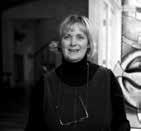
mozaik 36 I Heart Section I 25
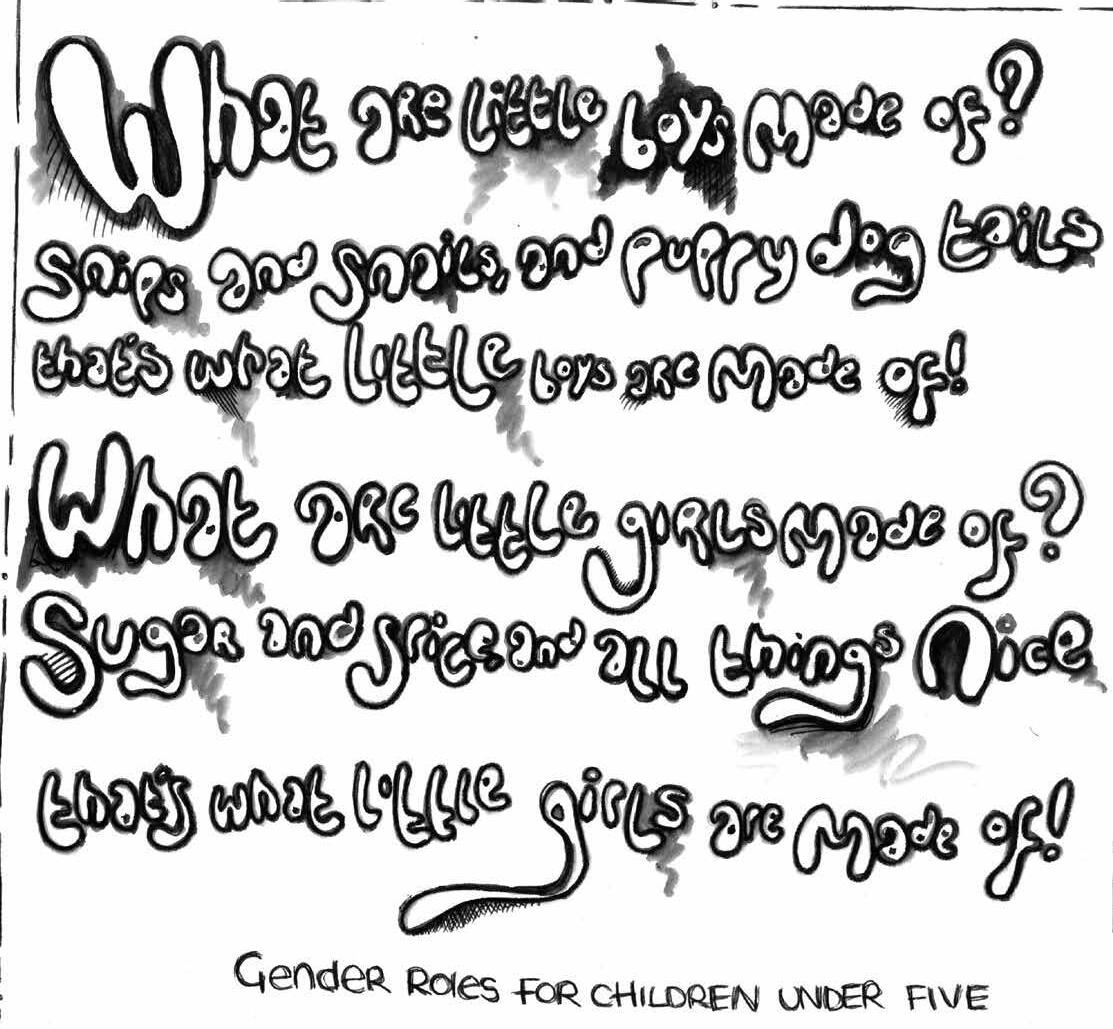
Masculinity
— rob howe
Buff men are caricatures of what manhood is. Or so I think whenever I see a bloke wearing a tight, hugging shirt, bearing his ripped arms and bulging pecs.
On the one hand I rate these guys. Committed, they’ve exerted sustained effort to achieve such a physique. And they obviously value their health and wellbeing. But why do they go to such extremes?
Is it to exhibit their virility? Or perhaps they’re insecure?
I think they do it because they’ve lost their minds. Rather, they understand masculinity to be defined by physicality and so they appropriate the image of peak state and bastardise it.
The human form in its peak state has been appreciated over the centuries. Michelangelo’s David demonstrates the worked body is a beautiful object. But confusion of the masculine can be seen in the individuals who sport grossly formed muscles, built by supplements and shakes.
The flawless physique exposes the flaws of the person. An accomplishment of masculinity, absent of what masculinity is. It’s impossible to define masculinity through physicality.
mozaik 36 I Heart Section I 27
It has been proven there are nine variations of sex and there are strong possibilities there could be more.
The caricatured male is a physical representation of what we think we should be, rather than embracing who and what we are. Within the neoliberal paradigm I suggest the media is a tool used by a hegemony to perpetuate anxiety amongst a globalised populace.

Our psychology is manipulated by marketers who know we (consumers) will feel compelled to copy the behaviour of others. This is why culture is saturated with digitally enhanced images. Anxiety is bred by a sense of deficiency. But to emerge as citizens it is necessary to resist.
Not saying I don’t work out, because I do. And I check myself out in the mirror too. But I understand masculinity is an idea and not a Truth. Masculinity is constructed to define roles for us within society. Masculinity is a label which excuses inequality.
—
Rob Howe believes the stories we tell hold transformational potential. Recognising climate change as the challenge of our time we are in need of telling a new story to live by.

mozaik 36 I Sexuality and Taboos I 28
rob howe
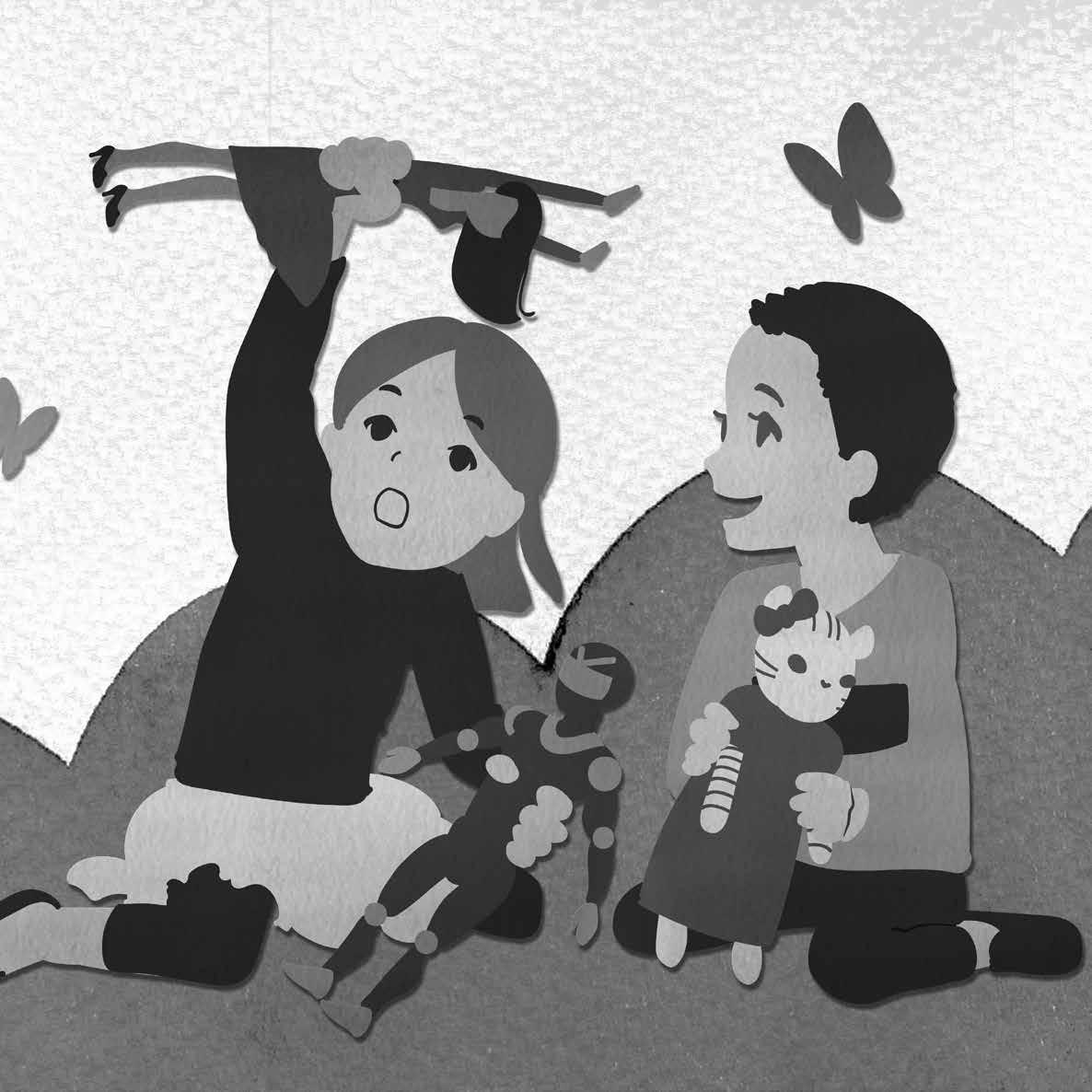

Is Love Dirty?
— pierre thierry
And you were excited to try, and I was excited to try, so in this shared joy, we tried. I let you move, taking me slowly in you, and it was all tenderness. And then I started to move, and that was exciting to you, and that was exciting to me.
Our bodies close, speaking in hushed voices, we shared that first experience and it was magnificient and glorious and intimate.
Father, I thank you for telling us that sex has a purpose, that it is very well within you plans for us humans, that we should apply every kind of love and care and attention when we experience it.
Jesus Christ, you became flesh and lived among us. You reminded us that we must apply your commandments in every aspect of our life.
Holy Spirit, please never let anyone convince us that sex is not beautiful and holy. Help us be caring and respectful lovers.
— pierre thierry

Pierre is a web developper and theology student. He teaches human and programming languages and, in his spare time, writes about ethics and the Bible.
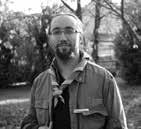
mozaik 36 I Heart Section I 31








 Mozaik Editor-in-Chief
— james jackson
Mozaik Editor-in-Chief
— james jackson










 carla grosch-miller
carla grosch-miller













